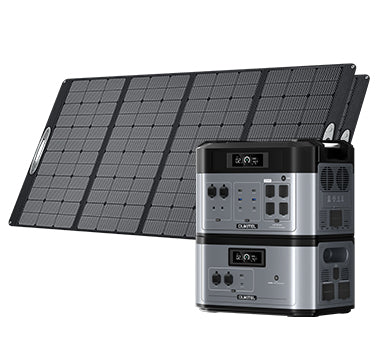Emergency Energy: The Importance of Battery Backup for Electric Vehicles and RVs
Navigation
The rise of electric vehicles (EVs) and recreational vehicles (RVs) has created an increased need for reliable battery backup systems. As more drivers switch to EVs and RV travel surges in popularity, having emergency energy storage is becoming essential. This article will explore the growing EV and RV markets, discuss why battery backups are vital for these vehicles, and outline key factors to consider when selecting battery solutions.
The Growing Market for EVs and RVs
The transition to electric transportation is accelerating globally. According to the International Energy Agency, the number of electric cars on roads worldwide surpassed 10 million at the end of 2020. Major automakers like GM and Ford have announced plans to phase out sales of gas-powered cars in favor of zero-emissions vehicle models by 2040. The RV and motorhome market has similarly exploded, especially since the start of the pandemic. According to the RV Industry Association, RV wholesale shipments reached over 600,000 units in 2021, the highest annual total on record. RV sales hit record highs in 2020 and continue to climb as more people embrace remote work and socially distanced travel options.

Reliance on Battery Backup
Both electric vehicles and RVs heavily rely on electricity to power various appliances, systems, and features. As these vehicles are mobile, they need to have backup battery power in case the primary power source is unavailable (e.g. when the EV is not connected to charger or RV is not hooked up to shore power). The battery backup ensures essential functions continue to operate and occupants stay comfortable until the main power is restored.
Key Considerations for Battery Backup in EVs and RVs
- Capacity: The battery needs sufficient power capacity to run critical loads for an extended duration until external power is available.
- Compatibility: It must be compatible with the electrical system/components it will power in the EV/RV.
- Recharging ability: It should recharge efficiently when the primary power is restored to be ready for the next outage.
- Durability: As it will be used infrequently, the battery must withstand storage periods and harsh environments without performance degradation.
- Safety: Li-ion batteries are commonly used but require careful installation due to fire risks if mishandled. Proper ventilation and cool operating temperatures are important.
- Cost: Backup batteries involve additional expenses so their value and lifespan must justify the costs.
- Ease of maintenance: Simple maintenance needs help the battery last its lifetime with minimal user effort/downtime.
The Benefits of Quality Battery Backups
- Uninterrupted power: Ensures critical appliances/systems have constant power during primary source outages.
- Enhanced comfort/convenience: Occupants can use amenities like lighting, fans without relying on external connection.
- Better reliability: Alleviates range/power loss anxiety in EVs and enables full off-grid functionality in RVs.
- Future-proofing: Additional backup power supports upgrades/greater power needs from newer technologies over time.
- Improved resale value: Properly selected/installed batteries increase EV/RV desirability and market worth.
- Overall protection: Provides a reliable safeguard against power disruptions from various causes.
Investing in robust, high-capacity battery backups provides both EVs and RVs with enhanced reliability, extended operating range, and greater energy independence. Carefully evaluating battery quality and suitability for the vehicle ensures your backup power solution can deliver these benefits.
Conclusion
As electric vehicles and RV travel continue gaining popularity, having dependable supplemental battery systems is becoming increasingly essential. Investing in backup power provides emergency energy reserves, ensures critical vehicle systems function uninterrupted, and allows for extended operating times between charges. When selecting backup batteries, RV and EV owners must consider capacity, durability, charging abilities, and overall quality to meet their needs. Taking steps to incorporate reliable battery storage enables electric vehicles and motorhomes to handle emergencies and maximize their capabilities.







































 Oukitel Flashlight
Oukitel Flashlight Oukitel Solar
Extension Cable
Oukitel Solar
Extension Cable

















Leave a comment